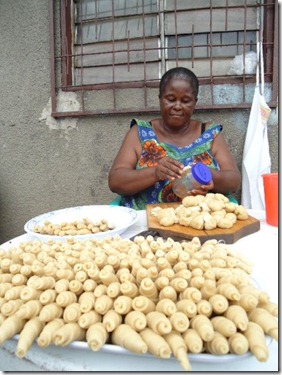There are a lot of people talking about giving during this final week of the year, but my favorite “talk” on charity comes from the Jewish scholar Maimonides. He describes the “eight levels of charity” according to the Mishneh and articulates the uncomfortable truth that not all charity is equal in intent or impact. The levels are as follows:
8. When donations are given grudgingly.
7. When one gives less than he should, but does so cheerfully.
6. When one gives directly to the poor upon being asked.
5. When one gives directly to the poor without being asked.
4. Donations when the recipient is aware of the donor’s identity, but the donor still doesn’t know the specific identity of the recipient.
3. Donations when the donor is aware to whom the charity is being given, but the recipient is unaware of the source.
2. Giving assistance in such a way that the giver and recipient are unknown to each other. Communal funds, administered by responsible people are also in this category.
1. The highest form of charity is to help sustain a person before they become impoverished by offering a substantial gift in a dignified manner, or by extending a suitable loan, or by helping them find employment or establish themselves in business so as to make it unnecessary for them to become dependent on others.
I love working with HOPE for the simple fact that we get to see the impact of giving that enables individuals to no longer be dependent on others. Check out the “normal” story of Semplice Victorine Zengui who is living in the Republic of Congo:
A widow, Semplice suffered from high blood pressure and leg problems that left her unable to walk and in need of medical care.
Relocating 240 miles from her home to the capital city of Brazzaville for treatment, Semplice needed to pay for her medical bills and opened a small pastry shop.
It quickly grew successful, but she lacked capital to invest in its growth. A $500 loan from HOPE Congo in October 2010 enabled her to stock her bakery with high-quality supplies and employ an assistant to meet the demand for her delectable pastries.
Today, Semplice now earns enough to provide for herself and to be generous to others in her community.
- When the two young nieces she supports got malaria, Semplice could pay for their treatment from her savings.
- She’s doubled her tithing as she places her faith in God’s provision.
- She also pays the transportation fees for a nursing student who is already using her medical skills to help many people in the community.
Semplice says she wants her success to inspire others to pursue their dreams. She describes her partnership with HOPE as a blessing from God, and now is passing along the gift of effective charity to others in her community.



